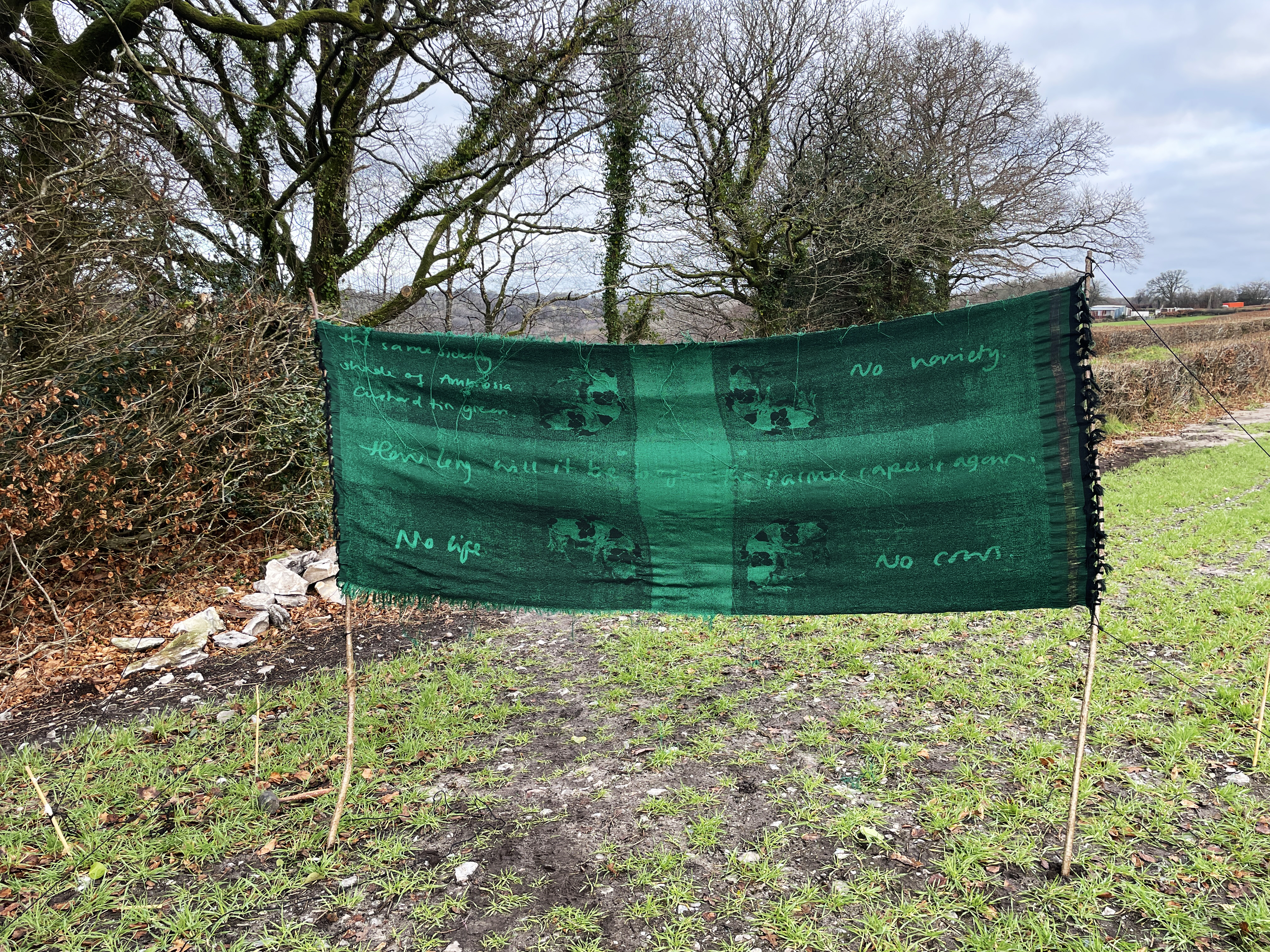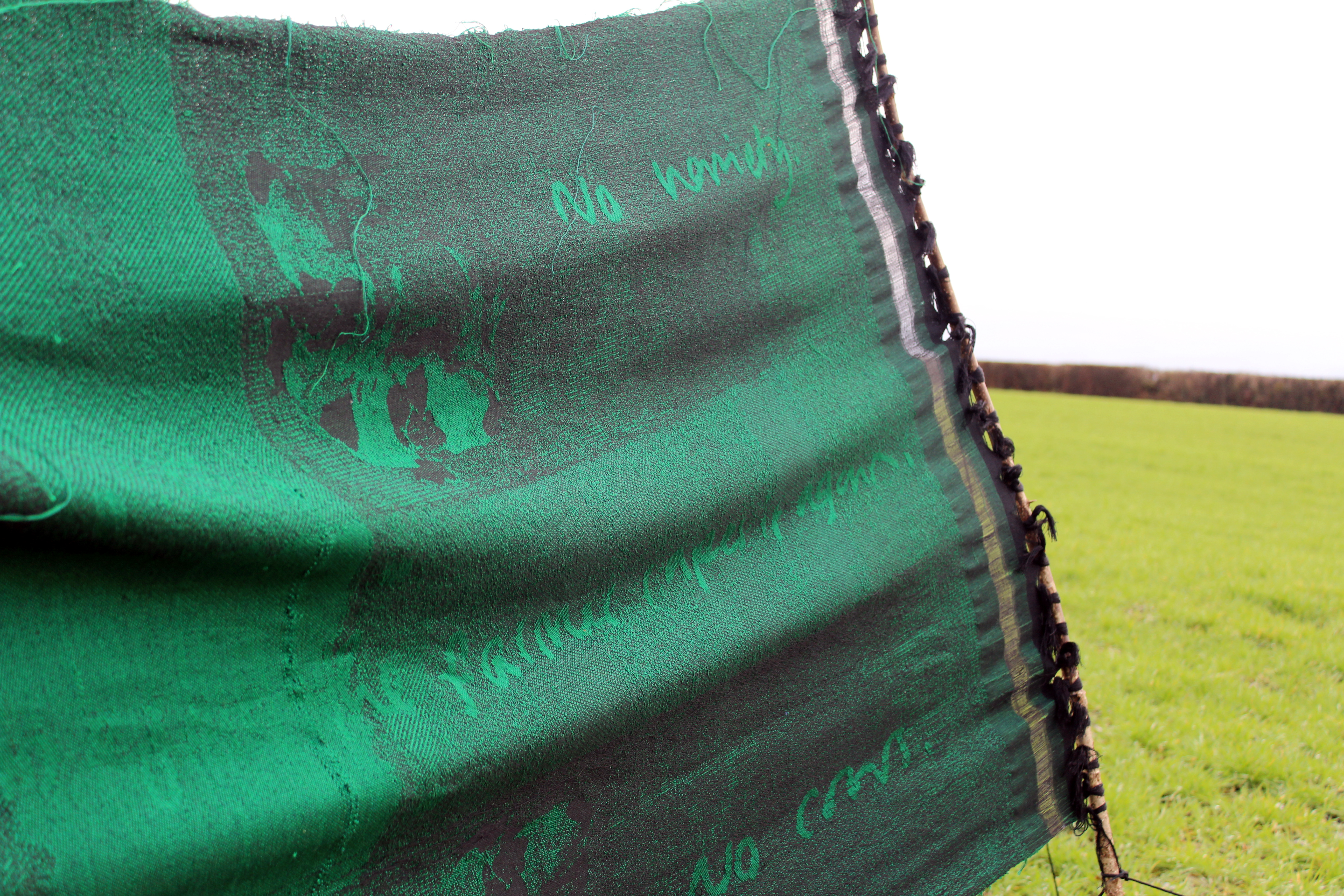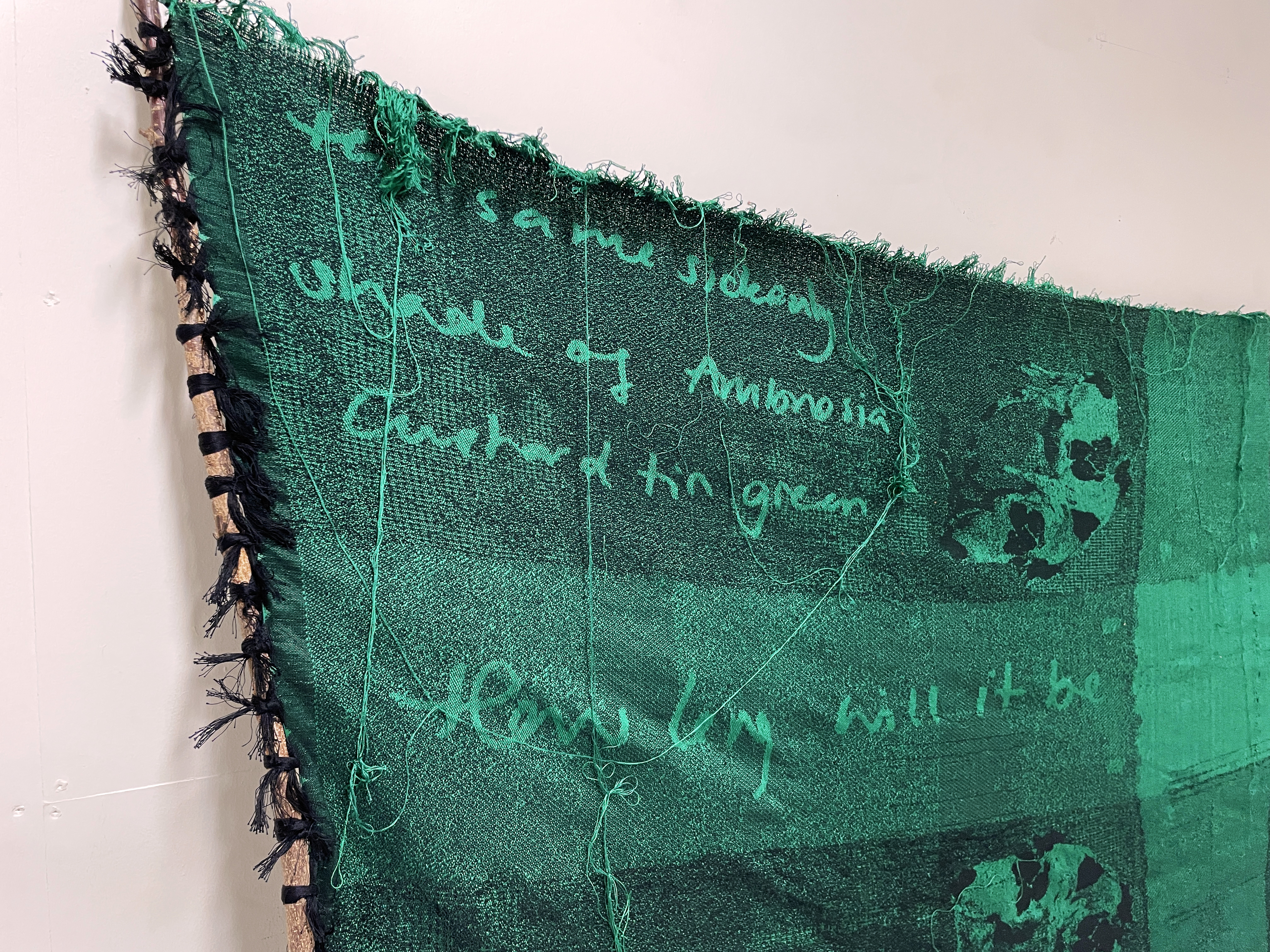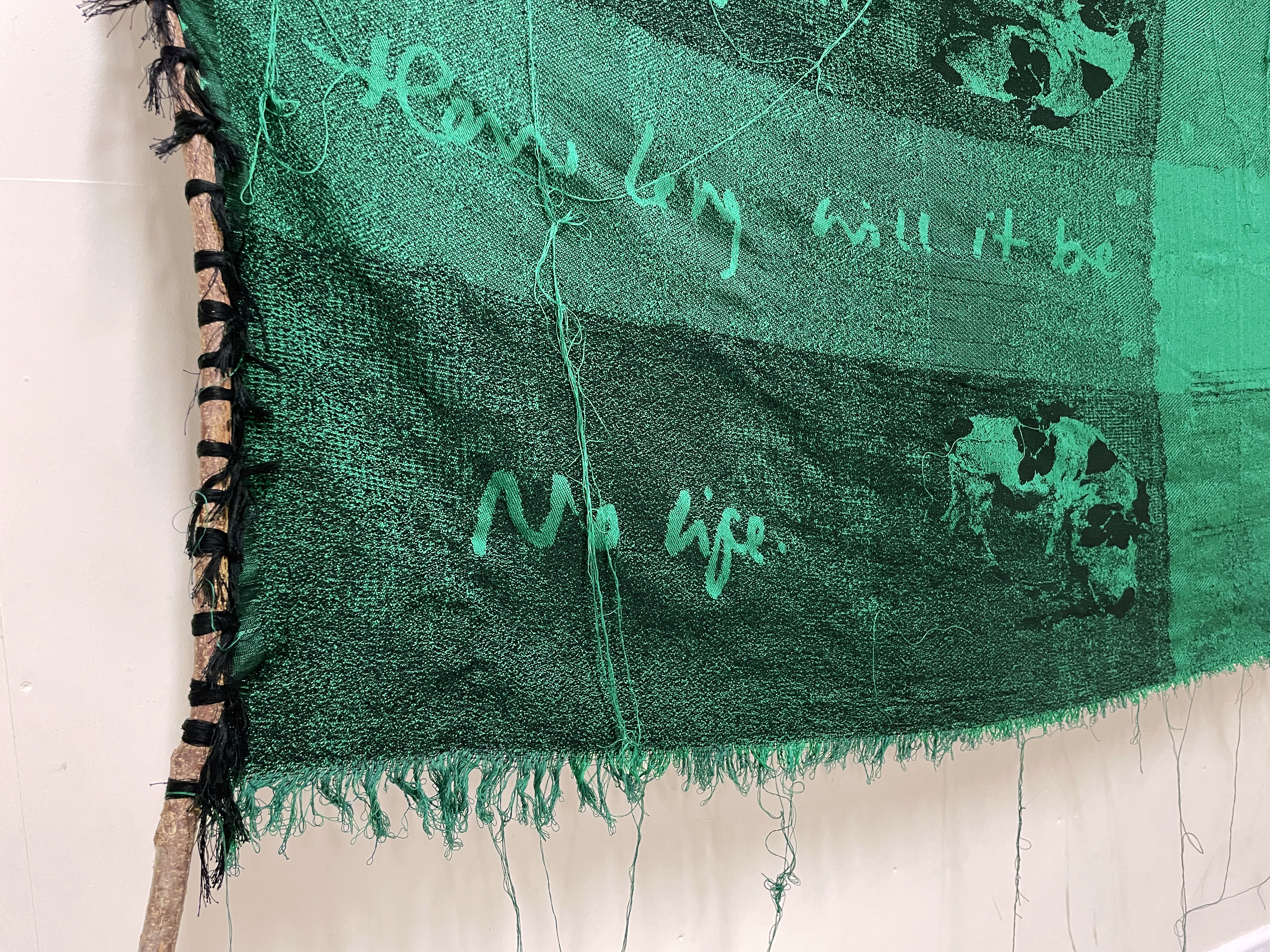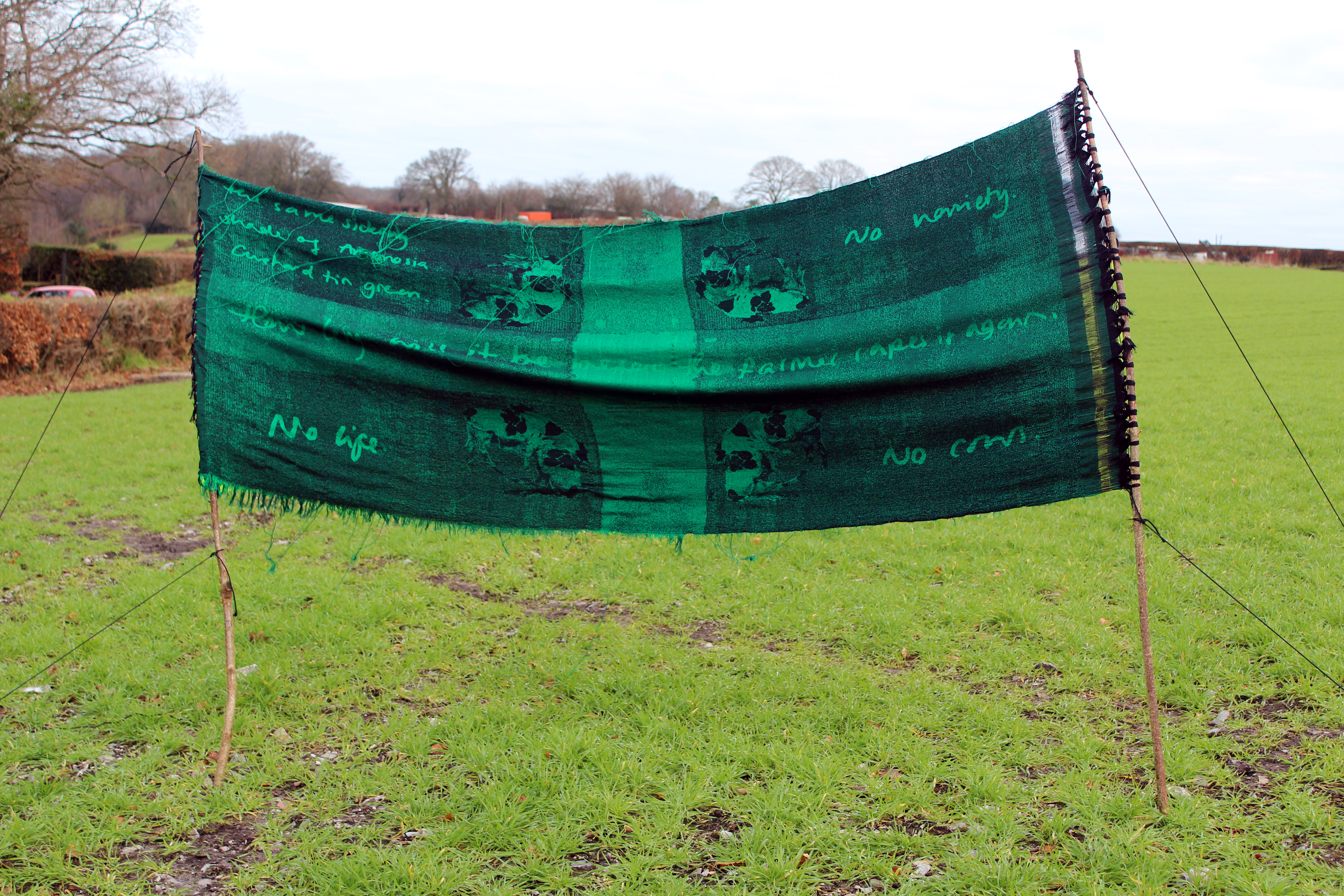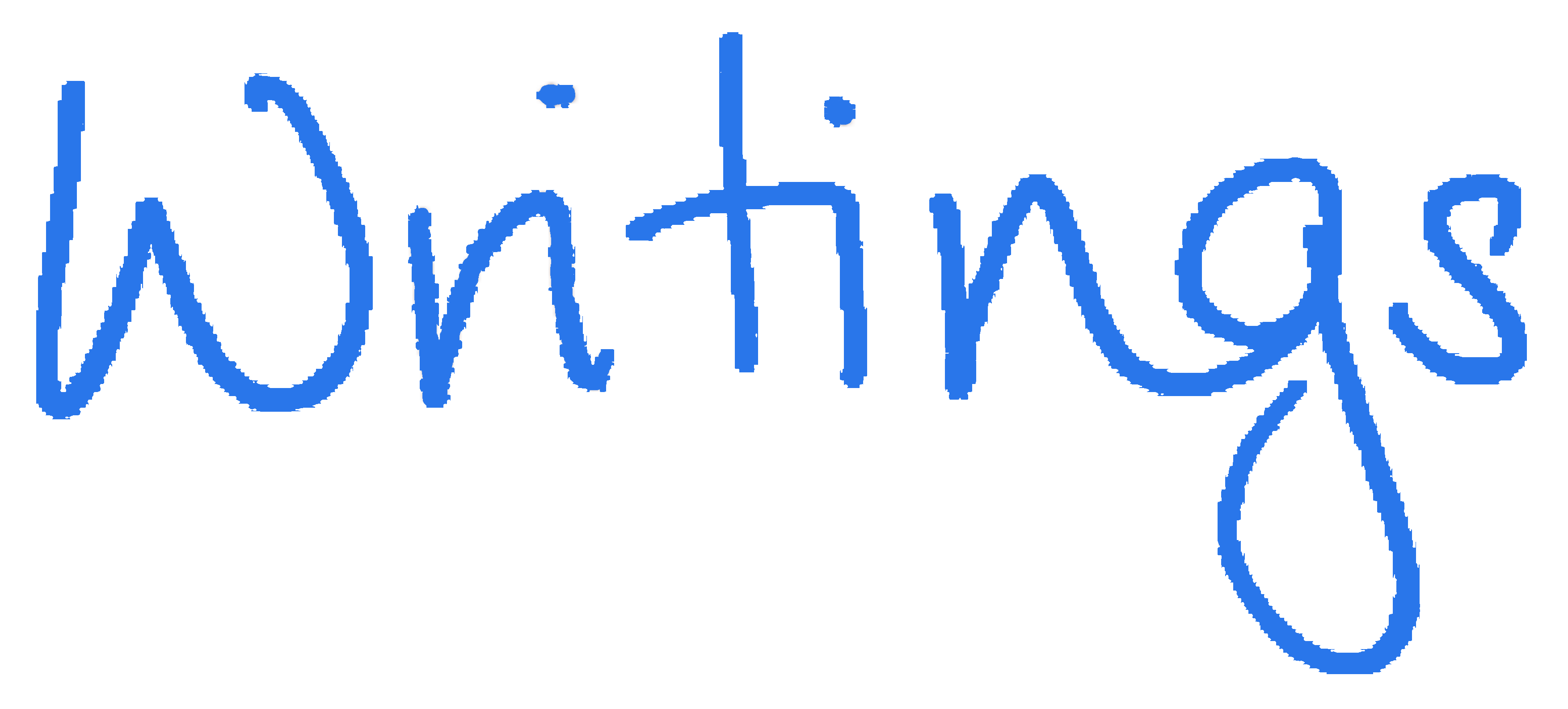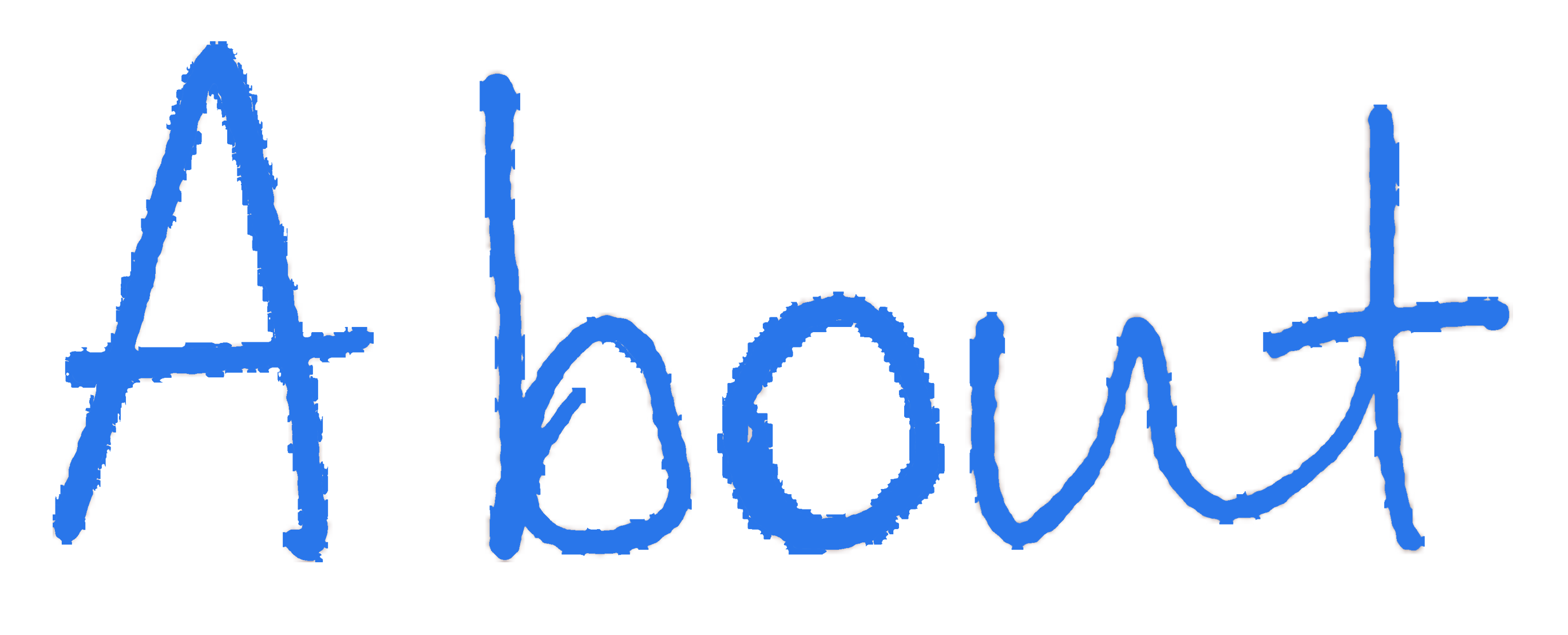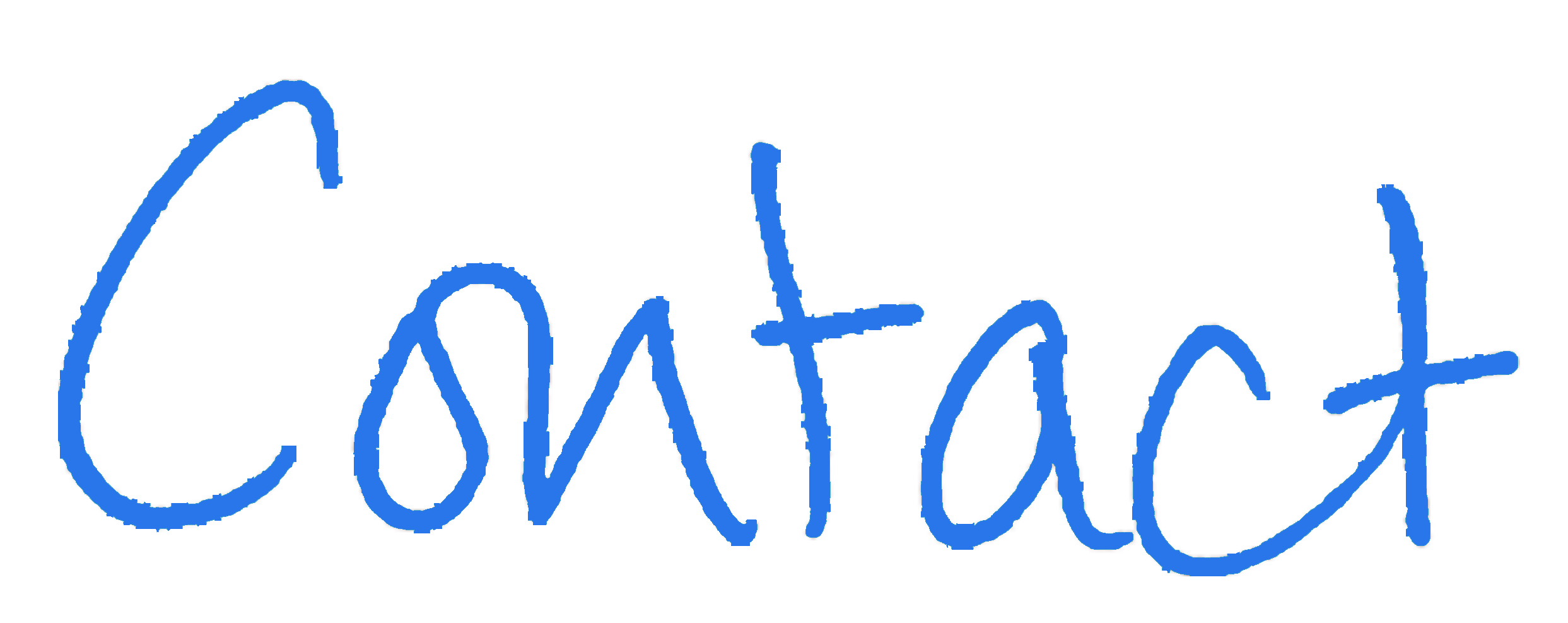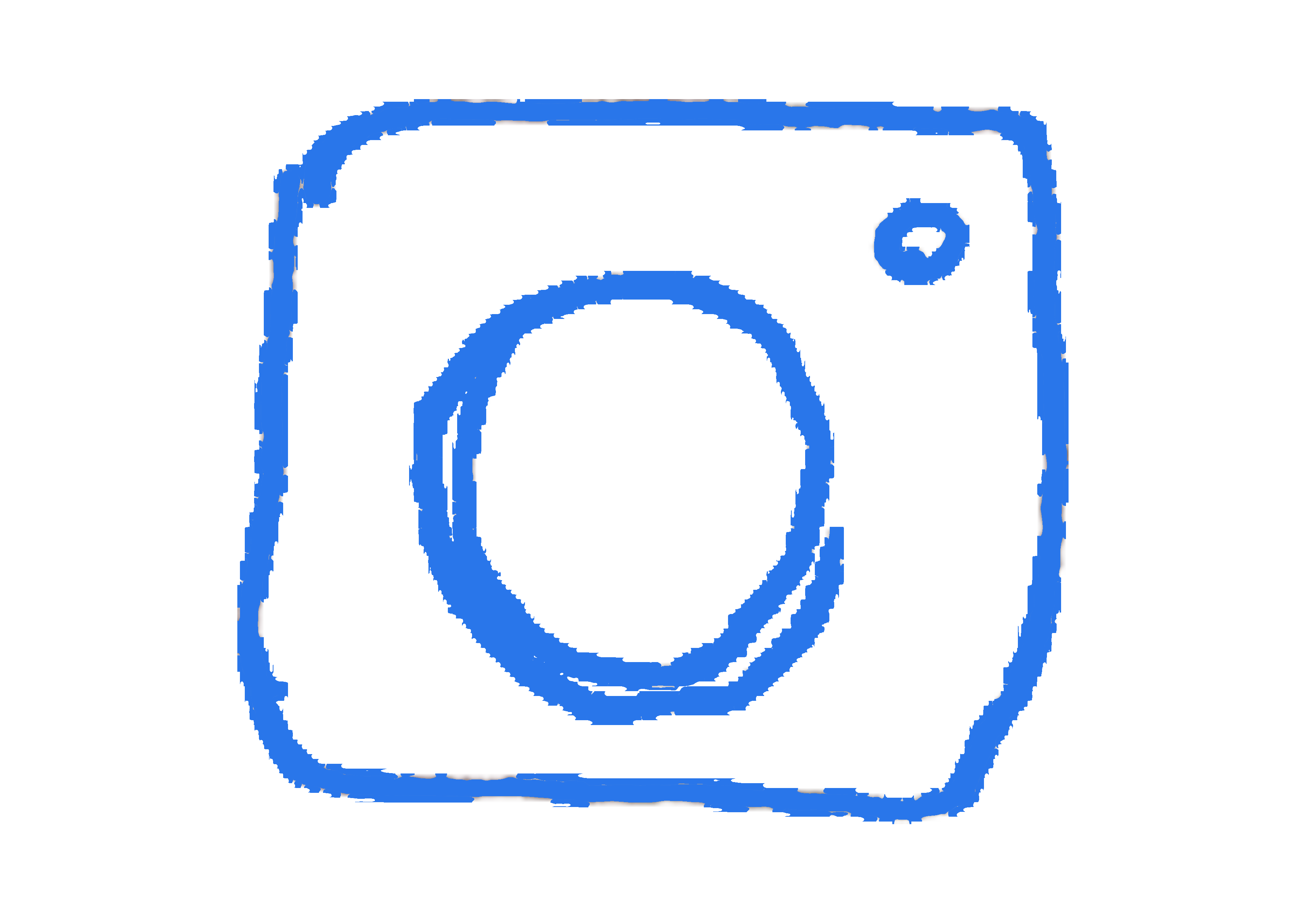Cross with St Petroc

2025
Jacquard Weaving
Mercerised Cotton and Hazel twigs
210cm x 265cm
Since 2020 I have been enamoured with a particular field on a particular walk that I like to do in Devon, where I was brought up. I go at sunrise, sunset, middle of the night, blazing sun, blistering rain. “Cross with St Petroc” is a weaving that comprises my emotional response to documenting the farming practices in a particular Devon field since 2020. A photograph of a cow in the field is repeated several times to create a ghost image of the Devon flag, “St Petroc’s Cross.” Instinctive, emotive writings are positioned in the four corners where I am displaying my ardent response to the treatment of this micro part of the Devon landscape. I am ‘cross with St Petroc.’
In 2020 three cows were kept in this field and I befriended them whilst anticipating the day they were no longer there and, of course, it came. Since this moment the land has been chemically killed back, ploughed, mono-cropped with maize, harvested and re-grassed with Italian Rye Grass. The conditions Maize needs to grow makes it a high risk crop for soil erosion, damaging the health and biodiversity of the land. There is a notion to always be on the side of your local farmer however every time I visit I find myself more upset at the environmental damage that’s happening to this tiny field.
Since the industrial revolution, globalisation has become more and more entrenched in our society. Today I feel the negative effects of it are larger than ever. The pressures citizens are under to lead individualistic lives and flourish economically are huge. When consuming, the quickest option is now deemed favourable: whatever takes the least amount of time away from our ability to maximise our labour time or precious time away from labour, often with little regard to the ecological impact generated. I see this reflected in this one small field, near where I grew up in Devon, with the Maize cultivation.
Moreover, visiting my family in Devon I feel like I can pause on my Capitalistic life in London. I am sensitive to the stark differences between the harsh never-ending concrete cityscape against the soft organic elements of the natural countryside. I like to pretend that Capitalism isn’t as rampant in Devon because of its density of natural landscape but then I tuned into the treatment of this one field and documented how the IRG has grown in ‘robot lines.’ This led me to investigate the farming practices of maize growing and engage with the local farming community.
Maize growing in the UK has trebled between 1990 and 2000 and has continued to increase. It’s used as silage for animal feed, despite there being known negative effects on the nutritional content of milk and meat as it makes cows more susceptible to TB. The conditions it needs to grow and the increased runoff caused by this make it a high risk crop for soil erosion. It makes me question what is happening on a broader scale.
To be deemed a good farmer one needs to constantly be monetising the land and in some cases submit to larger dairy or meat companies to avoid their contracts ending. These large companies will often push farmers to compromise on their practises in order to be profitable and meet requirements for government money. This tiny field serves as a reminder that Capitalism is very much inescapable in our world as it’s prevalent even in remote corners of rural society.
One farmer I spoke to demonstrated the capitalistic tensions I was finding when making this work. After expressing my concern for the soil health he replied “well farmers have to eat remember.”
I plan to continue visiting and documenting this field and continue my discussion with local farmers about their practices. I look forward to seeing what flora and fauna chooses to make this field its home.
